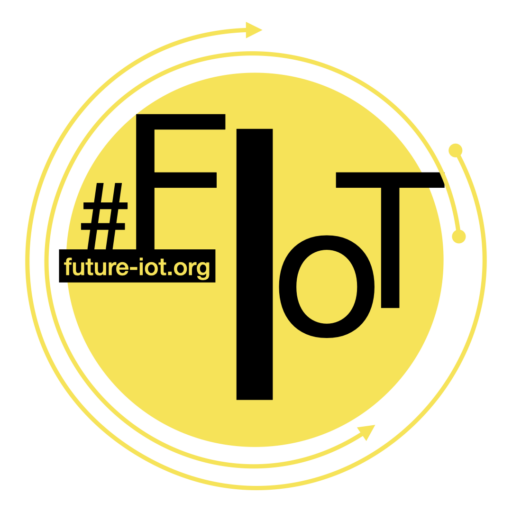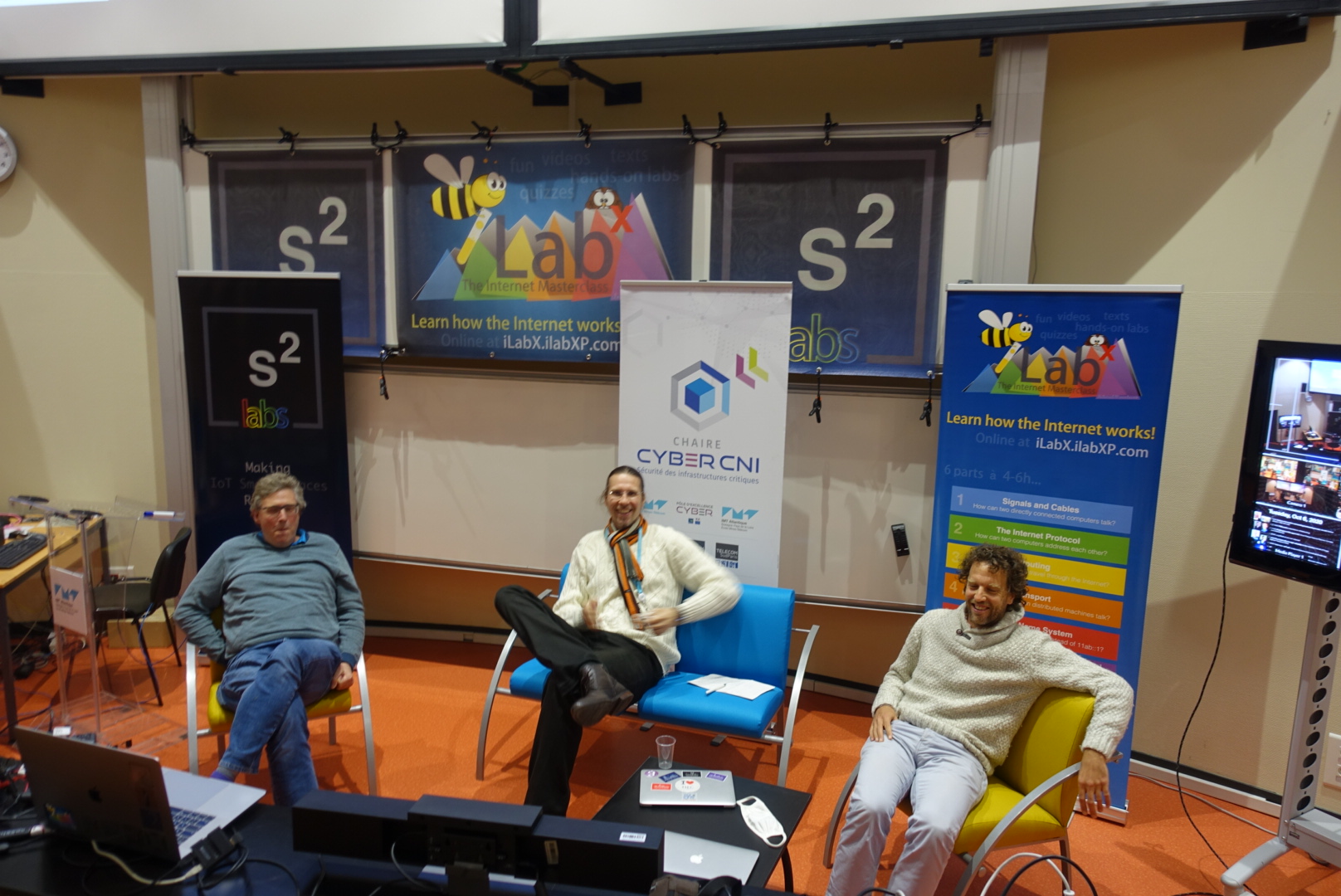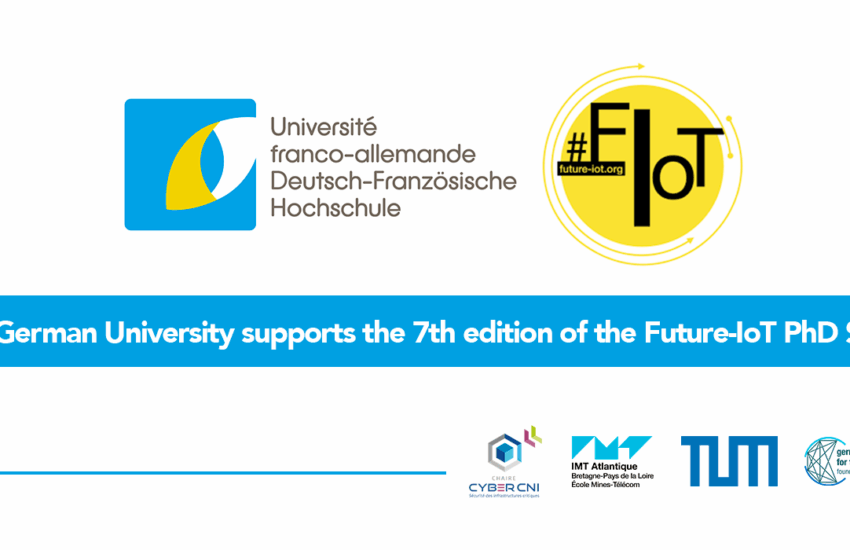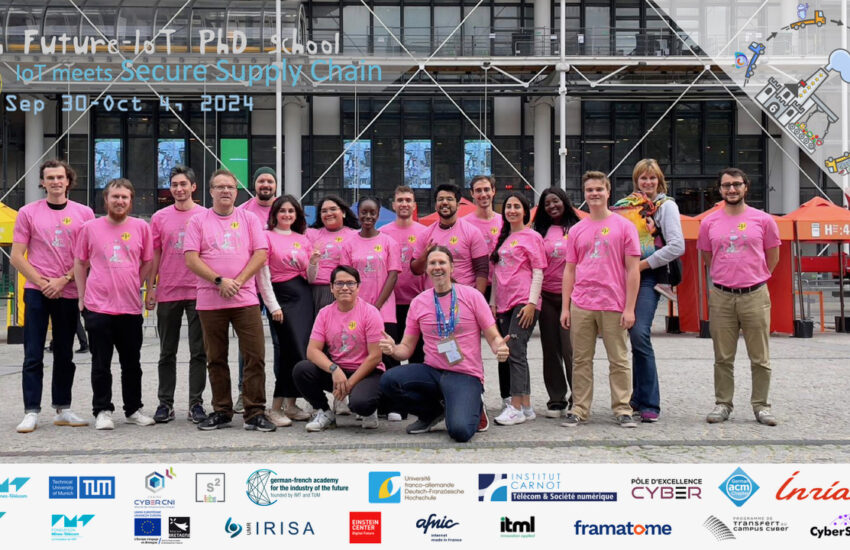Future-IoT 2020: Day 2 – Innovation, transitions, reliability, experimentation, and networking!
The second day of our Future-IoT PhD school “IoT meets Security” (Tuesday, Oct 6, 2020) had the motto “Innovation, transitions, reliability, experimentation, and networking”. With our about 40 pro-zoomers plus about 30 people on YouTube we had another exciting day!
The day was opened by Asinetta Serban from Amazon Web Services. She gave exciting insights into the working process that made Amazon such a successful enterprise: the working backward method. Working backward is the user-centric approach at Amazon. Asinetta took us on a fascinating journey through the company history since the beginnings in 1994. Her special focus was on the continuous development process.
Afterwards, our first strong networking event started: In the first zoom-only poster-presentation round, the first four of our PhD school participants presented their research work. In addition to the very interesting topic pitches, we had lively discussions within the Gather.town tool on the presented material. In the tool, the participants can freely move, approach each other, and chat. This was a great possibility for another PhD school goal: the virtual bonding between the participants.
Closing the morning, Ariane Group had the wonderful idea of presenting their keynote with three speakers. It made their presentation about “Challenges on the way to 4.0” even more lively. Olivier Presne, Francois Planchot, and Cornelia Lux introduced us to the world of space travel. The keynote gave very interesting insights into the transitioning process of an agile company towards 4.0, the current Factory 4.0. They also gave an overview of the challenges the company has to overcome to completely embrace the benefits of the new technology.
Fabrice Theoleyre from the CNRS introduced us in the first afternoon keynote to the insights of modern IoT communication. His talk was a great overview of current issues for connecting IoT nodes over short and long ranges. The very interesting talk fully matched the expectations from its title, “From best-effort to high-reliability for the Industrial Internet of Things”.
Next, Guillaume Schreiner from the Université de Strasbourg introduced us to the IoT Lab. IoT Lab is a huge IoT research lab where researchers from all over the world can run their experiments. A focus of the lab is on resource-constrained devices radio communication. Guillaume gave us a video tour through the impressive lab that we would have visited in Illkirch close to Strasbourg normally. Even though being at distance, it felt almost like being there!
The evening program for the pro participants was a panel discussion on the role, challenges, and opportunities of today’s Internet. It started with a video interview that Marc-Oliver Pahl did in 2016 with Vinton Cerf. You can find it here: https://youtu.be/-eGB7BNtR18.
Vint Cerf and Robert Khan did the central initial works on the Internet Protocol (IP) that holds the Internet together. In the interview, Vint describes how it all started, what were the challenges, and what makes the Internet such a great architecture.
After the video, Laurent Toutain, Nicolas Montavont, and Marc-Oliver Pahl discussed current challenges in today’s Internet with the participants. We had a lively discussion with great interaction with the participants! We covered topics such as sustainability, Internet for everyone, or resilience. This part was definitely a highlight of the PhD school!
To conclude, the second day of the IoT Summer School was a great success, giving participants the opportunity to interact with each other and discuss the presented material. Our thorough preparation is definitely paying off: the event is the closest it can be to a physical event.



